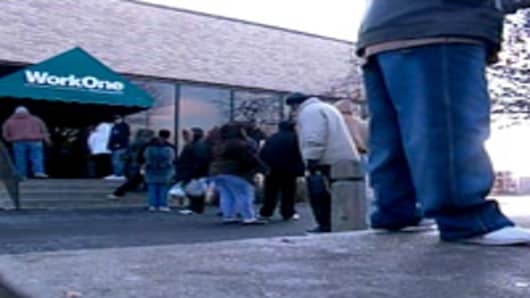“I don’t really see the private sector hiring much in the next few months,” says Brian Bethune, an economist at Global Insight. “For the small-business sector there is just too much uncertainty about what happens beyond 2010."
Not only is the Obama administration seeking to push through major overhauls of energy and health care policy, it is also expected to impose dozens of new workplace rules and raise income taxes.
As Washington and Wall Street grow increasingly restless about the unusually slow pace of job creation and the risk of a so-called jobless recovery, key business groups have begun to bang the drum more loudly.
In reporting that its small business optimism index fell for the second straight month in December, the National Federation of Independent Business Tuesday said members' No. 2 reason for not expanding payrolls was the prospect of government policy initiatives.
Twelve percent said it was not a good time to expand because of the political environment. Over the next three months, 15 percent said they plan to reduce employment, while eight percent plan to create new jobs.
“We're hearing it more and more from our membership,” says Bill Rys, the NFIB's tax counsel. "At the federal level, there’s uncertainty about tax rates, health care costs, energy costs. You also have what’s going on at the state and local levels, with new fees and taxes. They're reluctant to jump back in.”
Rys says the effect has been more pronounced in the past few months, perhaps mirroring the legislative progress of the massive health care reform bill, the highly-publicized Copenhagen climate change conference and new EPA rules on carbon emissions, as well as the approach of 2010, when the near decade-long Bush administration tax cuts are expected to expire.
The NFIB has some 350,000 members with an average size of eight to ten employees.
Much like the severity of the recession, the degree of potential government change is a historic first for many business owners.
“When they went into business this isn't something they considered,” says Rys.





